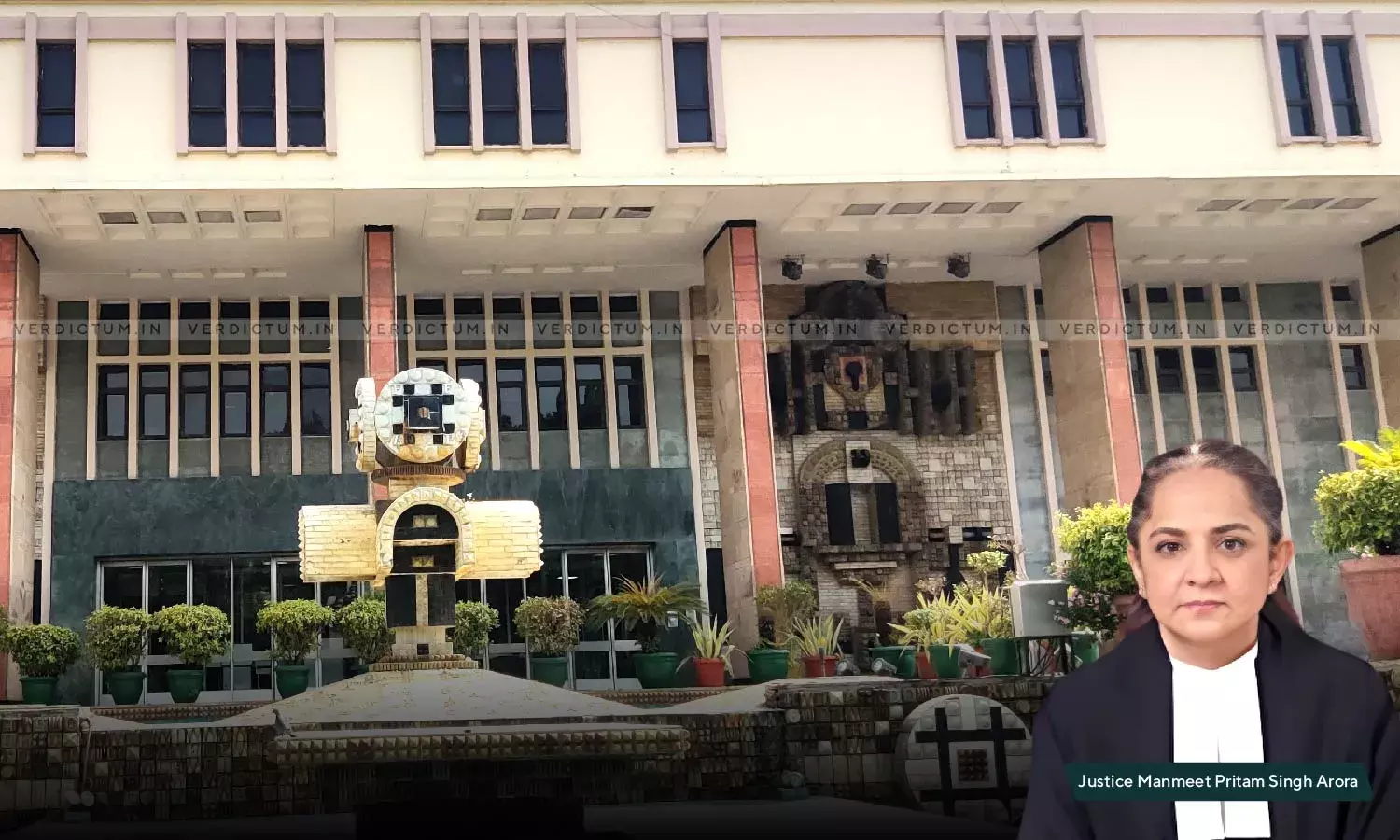Complaint Filed After 21 Years; In-laws Have Separate Household: Delhi High Court Upholds Non-Issuance Of Summons In Domestic Violence Complaint
The Petitioner woman had approached the Delhi High Court challenging the order upholding the decision passed by the Trial Court in regard to the non-summoning of her in-laws.

Justice Manmeet Pritam Singh Arora, Delhi High Court
The Delhi High Court has upheld an order deleting the in-laws of a woman from the array of parties in an alleged case of domestic violence after noting that they were residing in a separate household and the complaint was filed after 21 years of marriage.
The Petitioner woman had approached the High Court challenging the order upholding the decision passed by the Trial Court in regard to the non-summoning of her in-laws.
The Single Bench of Justice Manmeet Pritam Singh Arora said, “The marriage was solemnized in 2001 and the complaint has been filed in 2022 (i.e., after 21 years). The earliest date of incident of alleged domestic violence is of 2001 and the last allegation of incident of alleged domestic violence against Respondent Nos. 3 is of the year 2020 and for Respondent No. 5 is of 2017. These allegations in addition to being stale appear to have been made with an intent to rope in the relatives to exert pressure on Respondent No. 2/husband to provide Petitioner and her daughter with maintenance and alternate residence”, it said.
“Respondent No. 3 has a separate household. Respondent Nos. 5 and 6 have a separate household. Petitioner along with Respondent No. 2 has a separate household. However, as noted above the Petitioner is not seeking to enforce her right to reside in the shared household with either Respondent No. 3 or Respondent Nos. 5 and 6”, it added.
Advocate L.M. Grover represented the Petitioner, while ASC Yasir Rauf Ansari represented the Respondents.
Factual Background
The Petitioner had filed an application/complaint under section 12 of the DV Act before the Trial Court against her husband, parents-in-law and her brother-in-law, as well as his wife (respondents). It was alleged that the Petitioner was subjected to various kinds of cruelties by the Respondents. The respondents allegedly commented on her physical appearance, verbally abused her and also showed resentment at the birth of her daughter. The petitioner thus filed the complaint under the DV Act.
The Trial Court held that there was no domestic relationship between the Petitioner and the in-laws as she, along with her husband (Respondent 2), were residing in separate property and had established a separate household. Thereafter, the Petitioner filed an appeal under Section 29 of the DV Act, but the same was dismissed. Aggrieved thereby, the petitioner approached the High Court.
Reasoning
On a perusal of the facts of the case, the Bench found that the complaint alleging domestic violence had been filed after 21 years of marriage and after 9 years since the Petitioner last resided with her in-laws. It was also noticed that in the complaint, there were bald allegations that the Respondents demanded gifts; however, there were no specific averments in the complaint qua the said demands vis-à-vis the deleted Respondents.
It was further noticed that the Appellate Court held that since the Petitioner and in-laws were residing separately, there was no present and continuing threat of domestic violence. This finding of the Appellate Court was not disputed by the Petitioner during the course of the arguments. As per the Bench, this was a relevant consideration justifying the non-issuance of summons to the in-laws.
“The specific incidents pleaded in the complaint against Respondent No. 2 has already resulted in initiation of criminal proceedings against him and the reliefs sought in the complaint are being pursued against Respondent No. 2/husband and being heard by the Trial Court. Thus, the impugned orders deleting Respondent Nos. 3, 5 and 6 requires no interference and the proceedings qua Respondent No. 4 have already abated as noted above”, it held.
Thus, in light of such facts and circumstances, the Bench dismissed the Petition.
Cause Title: X v. State (NCT) of Delhi & Ors. (Neutral Citation: 2025: DHC:5226)
Appearance
Petitioner: Advocate L.M. Grover
Respondents: ASC Yasir Rauf Ansari, Advocates Alok Sharma, Jyotsana Pandit, SI Awant, Advocate Roshan Lal Saini

